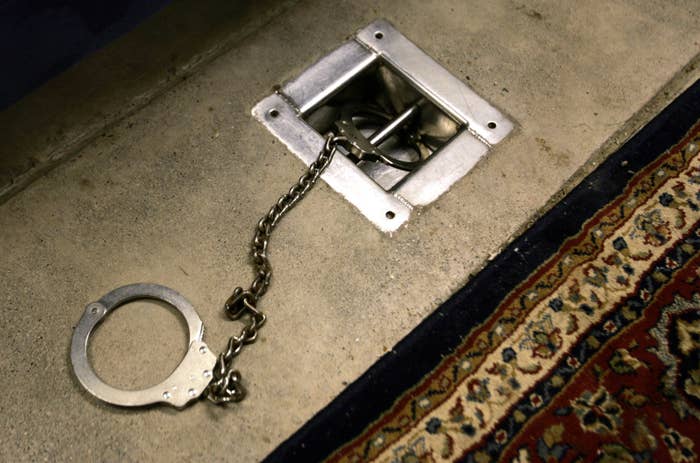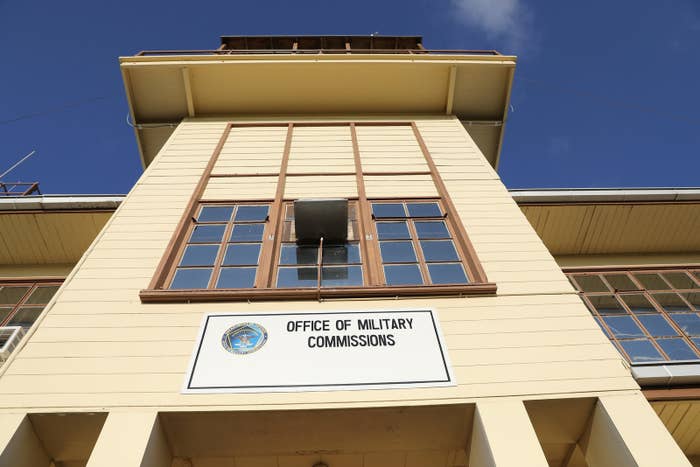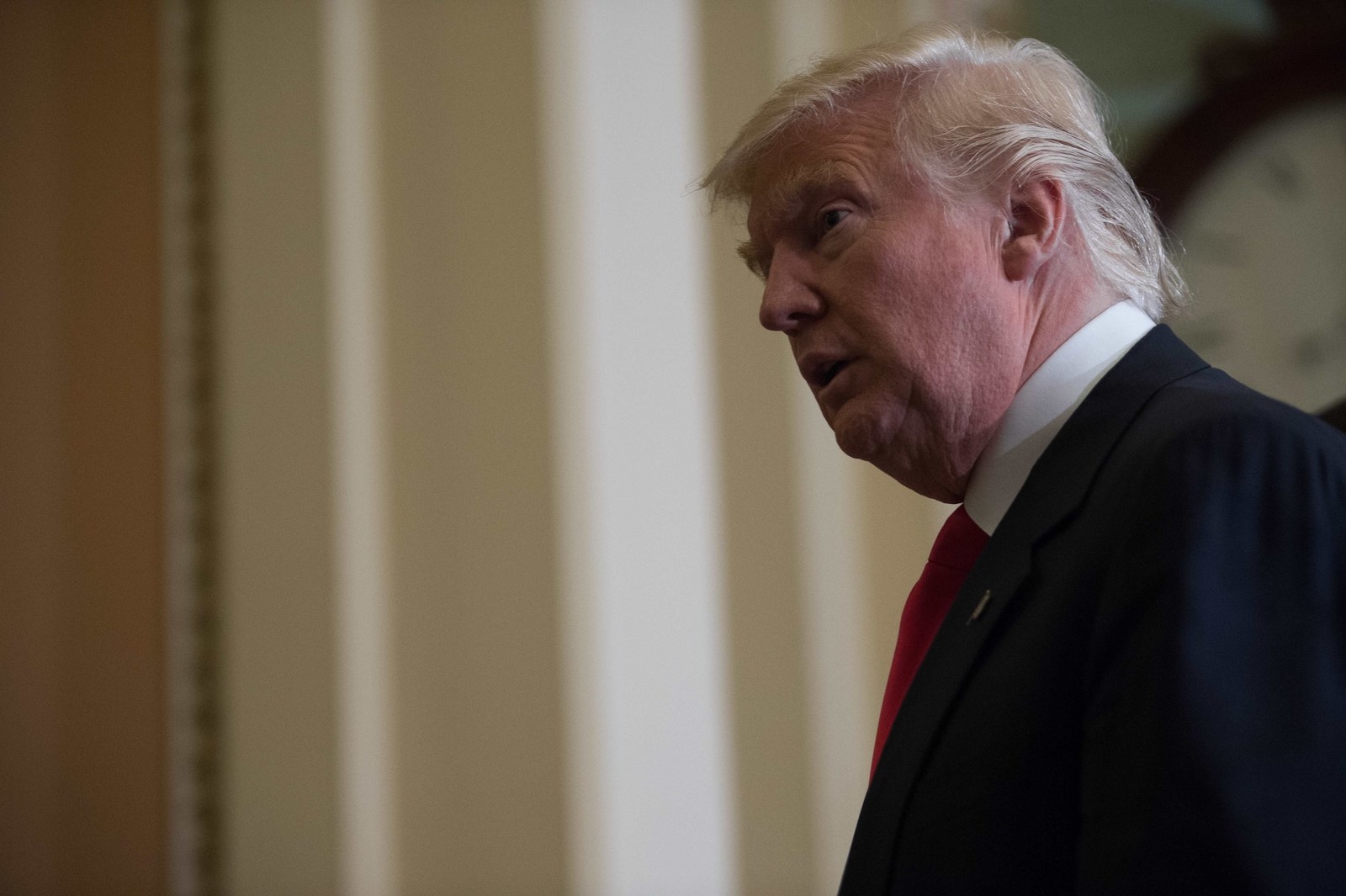
WASHINGTON — President-elect Donald Trump’s promise to bring back enhanced interrogation techniques — including waterboarding and “a hell of a lot worse than waterboarding” — is rattling the tight-knit community of government officials and activists who have worked for a decade to forbid it.
“I cannot believe we are honestly having this convo,” one anti-torture advocate, who has helped shape interrogation policy during Obama’s tenure, wrote to BuzzFeed News in an email. “This is so fucking depressing.”
Trump first promised back in February, months before he won the Republican nomination, that he would revive the use of Bush-era interrogation tactics — like waterboarding, sleep deprivation and rectal feeding — that have since been outlawed and labeled torture. After his win, Republican lawmakers are coming out of the woodwork and endorsing his plan. Sen. Tom Cotton said Wednesday night that he had faith in Mr. Trump to “make those tough calls” to bring back waterboarding.
For this small community — made up of a smattering of human rights groups, activists and former national security officials — that rhetoric threatens to invalidate nearly a decade of anti-torture efforts and void the marginal, but significant, successes under the Obama administration. While Obama has been fiercely criticized for failing to prosecute Bush-era officials for the CIA’s now-defunct torture program and for aiding the CIA’s obfuscation on the issue, there has been slow, but significant effort to close off pathways for the US to torture in the future, including policies that have passed through Congress.

“I think there’s a real sense of trepidation, almost dread, at the thought that all the work that has been done, including on a bipartisan basis, could be erased,” said Raha Wala, director of national security advocacy for Human Rights First. “It’s really hard. Personally for me, having worked on this stuff for six-plus years, it’s really devastating to think about the possibility that all the work that we’ve done could be rolled back."
“There go 100 years of human rights development, established law on torture, both US and international. Every human rights reassurance, every standard that we make for other countries, eradicated in this completely flippant statement," said Alka Pradhan, a lawyer for Guantanamo Bay Military Commissions defendant Ammar al Baluchi, who was tortured while in CIA custody from 2003 to 2006. “We’re no longer saying that the United States does not torture, we’re saying the United States should torture, which really to me, just takes the bottom out of this conversation.”
Trump’s path to reviving the use of waterboarding and other enhanced interrogation techniques will be a challenging one, but certainly not impossible. Torture is currently outlawed by several statutes; internationally, its use is forbidden by the Geneva Conventions, and US law prohibits torture broadly. The 2005 Detainee Treatment Act goes a step further, outlawing “cruel, inhuman or degrading treatment.” Executive Order 13491, signed by Obama during his first week in office, outlawed the use of harsh interrogation techniques, and an amendment passed by a bipartisan group of lawmakers last year forbids the use of any interrogation technique not included in the military’s handbook, the Army Field Manual.
And, in a hard-fought moment of reckoning, the Senate undertook and completed its largest congressional investigation to date, and issued a 6,000-plus page report on the CIA’s torture program. A 500-page summary of that report was declassified in December of 2014. National Security officials — including the head of the CIA — have said they would refuse any presidential order to ever again carry out the harsh tactics.
Little of that matters, though, if Trump is indeed determined to find a way to allow another era of torture to happen. If that proves to be the case, it could very well echo the post-9/11 era, when Justice Department lawyers helped White House and CIA advisors perform legal acrobatics to redefine the harsh techniques as something other than torture.
“I am angry that the last eight years we didn’t, the country didn’t do enough to prevent his from happening again,” said Naureen Shah, the director of the national security program for Amnesty International's USA mission. “We can talk about all of the laws we got passed, [but] this comes down to whether Justice Department lawyers are going to write permission slips.”
“It took, literally, perhaps six people to overthrow the legal policies and substance of our government, and to make us de facto and de jure a government of Executive Orders, and no longer a democracy, for vast swaths of public activity,” Glenn Carle, a former CIA officer who refused to use the harsh techniques during his time in the CIA, said of the Bush-era program. “It is chilling. It happened in the blink of an eye...the president has awesome powers.”
There is measured optimism that Trump will change his tune on torture once he’s briefed by more experienced national security minds. The incoming president has proven wishy-washy on whether he would actually bring it back — after fierce backlash when he first broached the subject, Trump reversed course, saying he knew torture was illegal and wouldn't ask any official to carry out an illegal order. But he has since continued touting waterboarding and questioned why the US wouldn’t use it.

“Personally, I think that he is someone during a campaign who was saying what he thought. But I don’t think he’s steeped in the law, he’s not a lawyer, he doesn’t have really the expertise and experience to be making those judgements,” said Laura Pitter, senior national security counsel for Human Rights Watch. “Despite the fact that he did say some of these very worrying things during the campaign, I hope that more reasoned analysis will actually take hold when it comes down to making policy.”
Every member of the anti-torture community that BuzzFeed News spoke with vowed to challenge any effort by a Trump White House to reinstate waterboarding, or any iteration of the Bush-era interrogation program. “This is not happening without a fight,” said Wala.
Despite that, the too-close-for-comfort proximity of another era of torture is an outcome few saw coming, leaving them questioning what more could have been done.
“We collectively, the human rights community, people who abhor torture, we should have been, we were smarter than this,” said Shah. “We knew that it could happen again. It’s naive to think it couldn’t happen again.”
